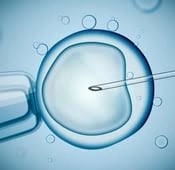
Does Age Affect the Success of ICSI? Insights from Dr. Dina Ali Eid
Published on: 2025-06-29 | Written by: Dr. Dina Ali Eid, Consultant of Obstetrics, Gynecology, IVF and High-Risk Pregnancy
Dr. Dina Ali Eid, Consultant in Obstetrics, Gynecology, IVF, High-Risk Pregnancy, and Fetal Medicine, Fellow of the Royal College in London and Dublin, and holder of a Master’s degree in Obstetrics and Gynecology from the Faculty of Medicine – Alexandria University, explains how a woman’s age directly impacts the success rate of ICSI (Intracytoplasmic Sperm Injection), and shares expert tips to improve outcomes.
What Is ICSI?
ICSI is one of the most commonly used assisted reproductive techniques to treat infertility. It involves injecting a single sperm directly into a mature egg in the lab, then transferring the resulting embryos into the uterus.
It’s especially indicated in cases of:
-
Male infertility or low sperm count
-
Blocked fallopian tubes
-
Advanced maternal age
-
Previous failed attempts at natural conception
Does Age Affect ICSI Success?
Dr. Dina Ali Eid confirms that age is one of the most critical factors influencing ICSI success due to its impact on egg quality and ovarian response:
1. Egg Quality Declines with Age
After age 35, the likelihood of chromosomal abnormalities increases, leading to:
-
Lower fertilization rates
-
Reduced embryo quality
-
Decreased implantation chances
2. Fewer Eggs Available
Ovarian reserve naturally diminishes over time, resulting in a weaker response to stimulation medications and fewer retrieved eggs.
3. Higher Miscarriage Risk
Older women are more prone to early pregnancy loss due to genetically abnormal embryos.
Age and Success Rates – Explained by Dr. Dina Ali Eid:
| Age Range | Approximate Success Rate |
|---|---|
| Under 35 | 50–60% |
| 35 to 37 | 40–45% |
| 38 to 40 | 30–35% |
| 41 to 43 | 15–20% |
| 44 and above | Less than 10% |
How to Improve Success Rates Despite Age?
Dr. Dina Ali Eid recommends several steps to boost the chances of success:
-
Early evaluation of ovarian reserve (AMH testing)
-
Tailored ovarian stimulation protocols
-
Hormonal support to optimize endometrial lining
-
Preimplantation Genetic Testing (PGT-A) especially after age 37
-
Adopting a healthy lifestyle before and during treatment
When to Consider Egg Freezing?
For women under 35 planning to delay pregnancy, Dr. Dina Ali Eid advises considering egg freezing to preserve fertility and increase future chances of conception.

